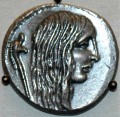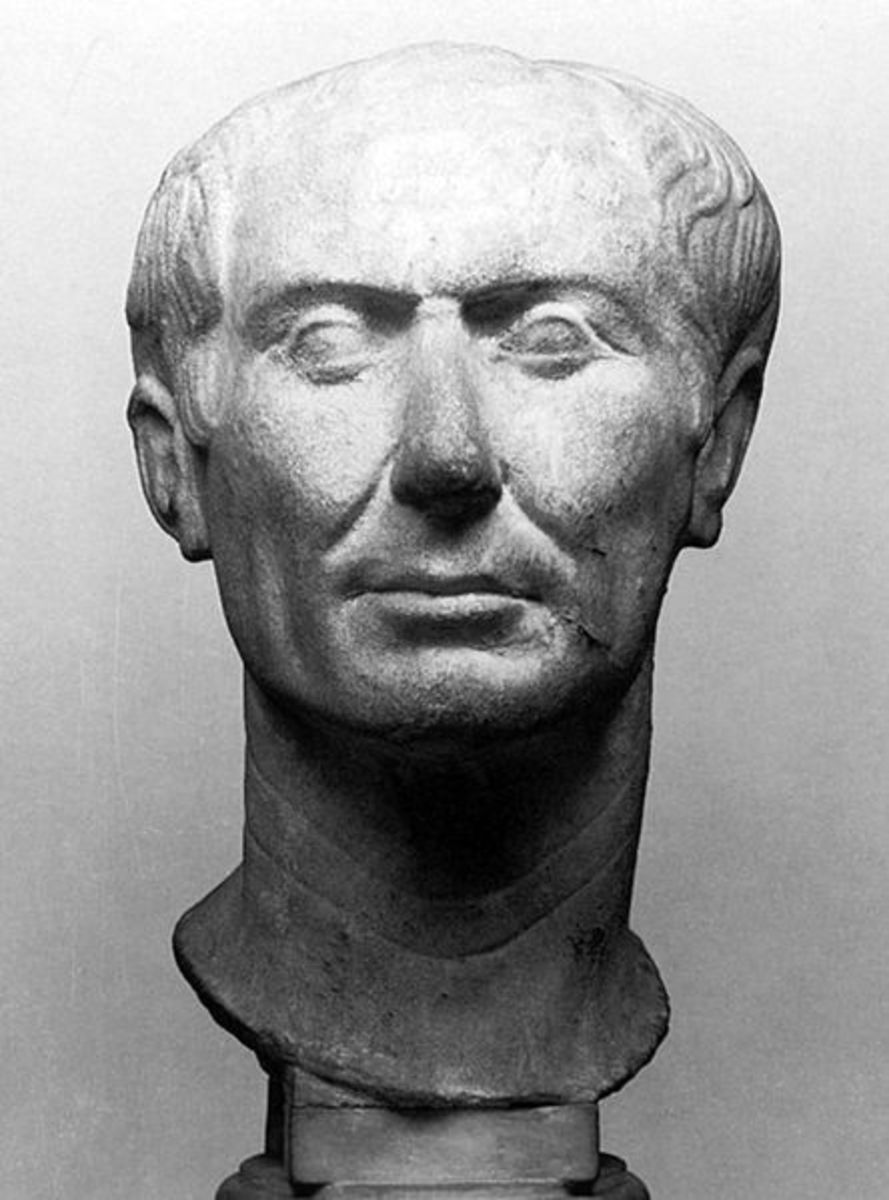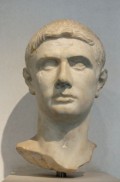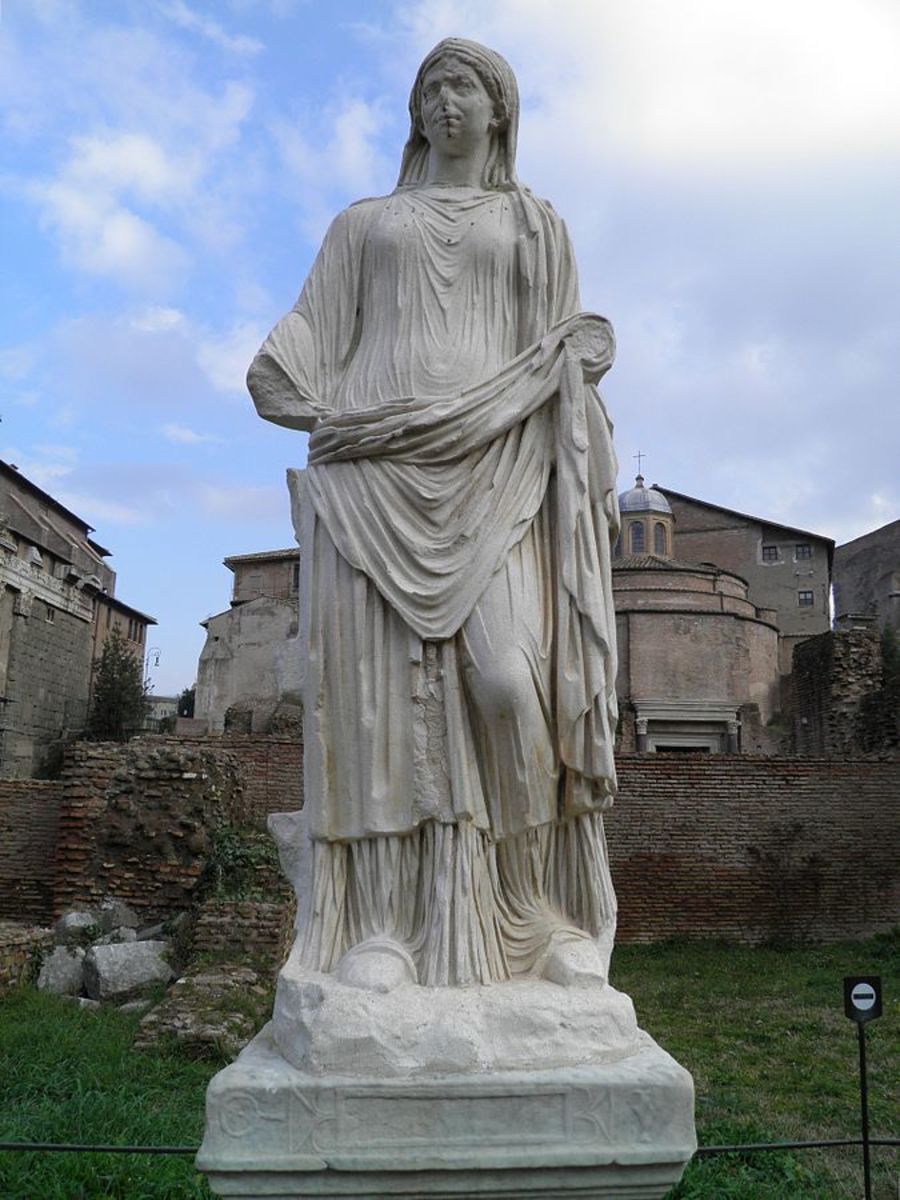- HubPages»
- Education and Science»
- History & Archaeology»
- Ancient History
Julius Caesar: Women and Political Ambitions
Caesar as a Statue
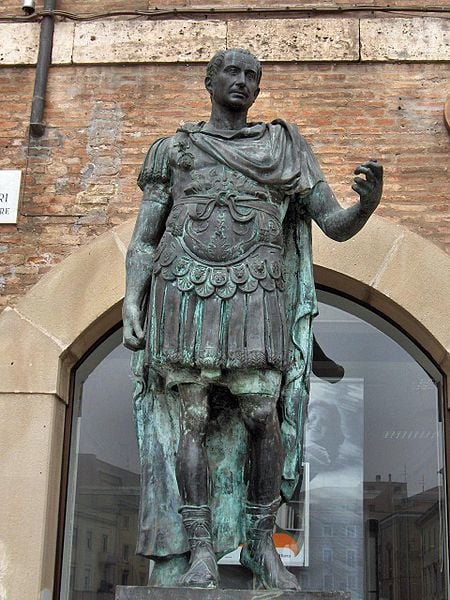
The One He Loved Most of All
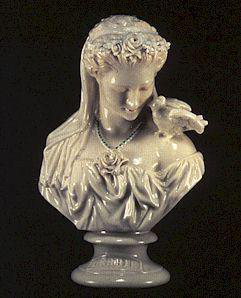
Caesar's Women
Before I continue with the Julius Caesar story, I want to take a little time out and talk about some of the women that were in his life at the time. Of course, I’ve already mentioned Cornelia, the woman he married who tragically died just before he was due to depart for Spain. She left him a young daughter called, of course Julia. On the whole, Caesar treated his first wife with enormous respect, including his famous defiance of Sulla’s order to divorce her.
Roman tradition dictated that wives were to be honoured and respected, rather than seen as objects of passion and desire; the Romans regarded such emotions as irrational and even shameful. The marriage bed was a place to produce children and nothing more. If a man so desired physical pleasure, he often had to look elsewhere. Such a practice was common among young aristocrats, and many kept their mistresses well into their marriage, there were even a group of high class prostitutes or companions who relied on rich lovers to provide them with a house or apartment, and all the fine living that they enjoyed. These women were often well educated, witty, charming and probably skilled at some form of art, whether it be singing, dancing or playing an instrument. These high class prostitutes, as well as doing the usual job a prostitute does, also provided intelligent company for their lovers.
Julius Caesar undoubtedly followed the aristocratic tradition with great enthusiasm. He probably amused himself with courtesans, slave girls and any other available women during his youth. The biographer, Suetonius records that Caesar often paid very high prices for the company of attractive slaves. In terms of actual lovers, the first mentioned was a woman called Tertulla, the wife of Crassus, who had been Caesar’s commander in the Slave Wars. Tertulla was several years older than Caesar, and yet strangely it seems that Crassus was totally ignorant of the affair, taking no action against either, and readily employing Caesar as a political ally.
By and large it seems that Caesar’s liaisons with married women did not last long, which explains why there were so many. One notable exception though was Servilia; according to Suetonius ‘he loved her before all others’. Servilia had originally been married to a man called Marcus Junius Brutus, but he had met his end for supporting Lepidus’ attempted coup in 78 BC, the widowed Servilia was left to look after her 7 year old son, also called Marcus Junius Brutus alone, yes this is the famous Marcus Brutus, the one who Shakespeare described as the ‘noblest Roman of them of all’. Caesar was extremely fond of Brutus, and their close relationship spawned rumours that Caesar was in fact his father. Plutarch even recorded this as fact, but given the fact that Caesar was only 15 when Brutus was born, it suggests that the rumours were just, rumours.
Caesar and Servilia’s relationship was particularly passionate because both shared so many common traits; both were very intelligent, held a deep interest in politics and were very keen on promoting their careers, although Servilia’s ambitions focused more on securing prominence for the male members of her family, especially Brutus. The affair would continue even after Servilia married her second husband, Decimus Junius Silanus. While there was no law against adultery in Ancient Rome, tradition did dictate a husband could kill their wife’s lover if caught. But usually violence was unlikely, instead the cuckolded would become a bitter political enemy of the adulterer.
A Land Made for Caesar
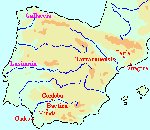
Spain
Okay, now on with the story. In the spring of 69 BC Caesar left Rome to begin his Quaestor posting in Further Spain (modern day Andalusia). He probably travelled out with the governor whom he had to serve, Antistius Vetus. While there, Caesar spent his time overseeing the accounts for the province, as well as touring towns and dealing with problems in the community. Caesar proved to be a very effective Quaestor, and later in his life he would remind the natives of his services and deeds to them. He was able to use his position to acquire influential clients from among the local populace.
Suetonius informs us that while Caesar was in Spain he suffered an epileptic fit, although it’s unclear when it actually happened. A more poignant and relevant incident occurred when he paid a visit to the city of Gades (modern Cadiz) to hold court. While there, he took the time to visit the Temple of Hercules and beheld a statue of Alexander the Great, the Macedonian King who had conquered half of the known world by the age of 25. Caesar became visibly distressed at the sight of the statue, bemoaning the fact that he had done so little in his life compared to Alexander. Even more disturbing was the dream he had of himself forcing his own mother; a clearly traumatised Caesar sought comfort from a soothsayer who interpreted the dream as a sign that Caesar was destined to rule the world. His reasoning was that his mother represented Mother Earth, the mother of all things, and his act represented dominance.
Aedile
Contrary to popular belief, Julius Caesar did not abandon his post as Quaestor in Spain. Instead he tied up all of his affairs and gained approval of the governor, Vetus. Anyway, even if he had it would have barely caused a ripple back home. The post of Quaestor lacked the fascination or importance to trouble the Roman Senate.
On his return to Rome, Caesar took the decision to marry a woman called Pompeia (no relation to Pompey) in fact she was the granddaughter of Caesar’s old enemy Sulla. Unexpectedly he did not use the union to undermine the remnants of the Sullan faction. Instead he used the union to support Pompey, who shared consulship with Crassus. He supported the so called two laws which bestowed extraordinary commands on Pompey. Caesar quickly came to regard the Consul as a very useful patron.
In 65 BC, he was elected to the post of Curule Aedile, now he had the right to sit in a magistrate’s official chair, just like a Praetor or Consul. Caesar was now responsible for the day to day running of the city, including the upkeep of temples, the cleaning and maintenance of the roads, aqueducts, and sewers. He was also responsible for overseeing the grain supply, the markets and even the brothels, but the main attraction of the role was organising public entertainments and festivals.
Right from his early days in the role, Caesar displayed an aptitude for self promotion and an ability to manipulate the opinion of the public. Suetonius alleges that he even entered into a conspiracy to give Crassus dictatorship. However, this claim is not backed up by Plutarch who claims that Caesar used his time as Aedile to restore the reputation of his Uncle Marius. He achieved this by commissioning images of Marius and of the goddess Victory to be set up on the Capitol. Some senators interpreted this, as Caesar seeking to establish a reign of tyranny, and Suetonius’ accounts are based on the gossip. It’s thought that his time as Aedile, helped Caesar become aware of the extraordinary talents he possessed, but it’s all too easy to assume that he had already mapped out his career at this point.
Then and Now
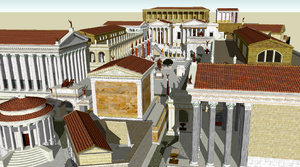
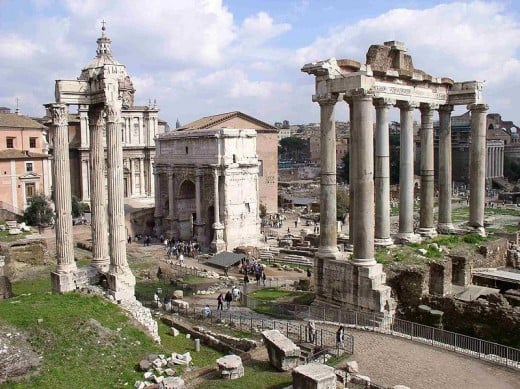
Gladiators and Games
Julius Caesar was probably the first Roman politician to ever acknowledge that gladiatorial games could be used to gain popularity with the people. Up until that point, gladiatorial bouts had only ever been permitted at funerals, as the belief at the time was that the souls of the deceased could only be appeased by the shedding of human blood. In Rome’s earliest days, the people simply sacrificed victims at the grave of a loved one; usually these victims were made up of prisoners of war or criminals. Only later did the fighting element come into play. Caesar bent the rules further by turning the contests into a lavish spectacle that honoured the memory of his father, who had died 20 years before.
He personally purchased 320 pairs of gladiators whom were kitted out in splendid silver armour. The games themselves were held in the Roman Forum; the famous Coliseum, seen in films like Gladiator wasn’t built until more than a century after Caesar’s death in 80 AD. Before the erection of the famous arena, the Forum served as the venue for entertainment. The show enabled Caesar to gain further recognition with the ordinary public, whose support was crucial when he next tried to stand for public office.
Four Awesome Books
Conspiracy
Caesar leapt on the first chance to capitalise on his already growing popularity, by assuming the lifetime position of ‘Pontifex Maximus’ or High Priest. The fact he had managed to win the position was extraordinary at the time, as it was usually filled by ex-consuls. Now, his responsibility lay with supervising the culture of Rome and regulating the calendar. Caesar deeply desired to reform the official calendar, which followed the lunar cycle and bring it into line with the solar year.
After gaining a position he knew he had for life, Caesar took the opportunity to move out of his modest house in a rundown area known as Subura and move into a fancy state house right in the centre of the Roman Forum. In its day, the Forum was the equivalent of Monaco or Dubai, only the wealthiest and most prestigious members of society lived there.
So, we now come to the conspiracy; it started with a senator called Catiline who launched an unsuccessful bid to become Consul in 63 BC. The following year, he stood again, with the surely winning proposal of cancelling all debts, but he was defeated yet again, largely through a highly influential senator called Cicero who used scare mongering tactics to sway the vote away from Catiline and towards himself. Seeing Cicero as Consul was too much to bear for Catiline and he therefore conspired to overthrow the Republic, at least that was what the Senate heard from their Consul. Caesar himself was charged with involvement in Catiline’s plotting, on account of publicly supporting his first run for Consul. Initially he moved to distance himself from it all, but relented to speak against the proposed execution of Catiline’s supporters, on the grounds that it would set a dangerous precedent, recommending instead that they been imprisoned in various towns away from Rome.
However, another prominent senator, Cato the Younger disagreed with Caesar’s proposal and spoke vehemently against him, even going as far to accuse Caesar of being a part of the conspiracy himself. Plutarch informs us that Cato challenged Caesar to read a letter that was delivered to him, whilst the Senate was in session. He believed that the letter had been written by Catiline, but the reality was actually rather amusing, the letter, was in fact a smutty love letter written by Cato’s half sister, Servilia, yes that Servilia.
Despite the obvious embarrassment he must have felt, Cato persisted in his campaign to reject Caesar’s proposals, and he succeeded. All five of the conspirators were executed without any sort of trial. The actual degree to which Caesar was really involved remains unclear, but it did help deliver useful ammunition to his growing band of enemies, who grew increasingly resentful and suspicious of his prominence.
Scandal
In December 63 BC, Julius Caesar’s private life was blown wide open. It started when a Senator called Clodius, who harboured ambitions to one day become Quaestor gained entry into his house. At the time, Rome was celebrating the festival of the ‘bona dea’ or good goddess, and Caesar’s house was chosen as the location for the nocturnal rites ceremonies that were performed exclusively by women, or more accurately by aristocratic women and their female attendants. After the ceremonies were complete the music, dancing and feasting continued all night.
Clodius was probably seeking to further an adulterous relationship with Pompeia, though it seemed a strange move to try to seek out his lover during a festival where only women were allowed to participate. Presumably, he must have donned a disguise in order to gain entry to the house. However, he was exposed by a female slave and later put on trial on the charge of sacrilege. Surprisingly Caesar refused to testify against him, and subsequently, Clodius was acquitted and sent on his way. It seems the only plausible explanation is that Clodius was a political ally, and Caesar did not wish to lose an ally, when his list of enemies grew ever larger. Nonetheless, he was less forgiving towards his wife and divorced her, as he did so he declared that ‘Caesar’s wife must be above suspicion.’ If ever you wanted evidence of the importance of public image to Caesar, then there it was. At the same time, the incident provided the best excuse for him to seek marriage for political reasons rather than for love.
Two Giants of Rome
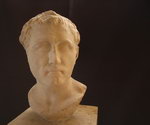
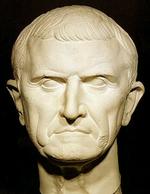
Growing Ambitions
Two years later, Julius Caesar was appointed Propraetor of Further Spain. As was typical of most young politicians, he was now in considerable debt; understandable when you consider that he funded the gladiatorial games himself. He was compelled to borrow a vast amount of money from Crassus, the wealthiest man in Rome who had made his fortune by buying up properties at knockdown prices. Whilst in Spain, Caesar brought Lusitania (Portugal) under the rule of Rome and was awarded a triumph or parade through Rome by the Senate.
In light of his overwhelming success, Caesar now firmly had his eyes on the ultimate prize in the Roman Republic, Consulship. But Roman law required him to relieve himself of command before announcing his candidacy. The Senate, by and large were willing to grant him a special dispensation. But the voice of enemy Cato the Younger spoke loudest again, and Caesar was forced to choose between military or politics. In the end, the prospect of gaining the ultimate prize was too good to pass up and he gave priority to his political ambitions. As a result of renouncing his command, the triumph was cancelled, and he returned to Rome as an ordinary private citizen.
Once back in the city he took the rather risky and bold step of striking a secret deal with the two most powerful men in Rome, Pompey and Crassus. The two men had previously been rivals, but also shared the common problem in having been thwarted by the Senate when trying to pass new legislations. Pompey wanted all of the political settlements he had drawn up in the newly conquered east to be ratified and be allowed to offer land to his veterans. Crassus wanted greater control over trade and also wanted the Asian tax collectors to be granted remission for one third of the money they owed to the Republic.
Caesar agreed to honour both men’s interests, in exchange for support in his bid to become Consul from the two men. Pompey and Crassus agreed to do so using bribery and influence. As a reward, after the expiration of his Consulship, he would receive a wealthy province with which he could use to clear his enormous debts. The Senate anticipated his election and attempted to thwart him by threatening him that he would serve his Consulship in the forests and cattle tracks of the wilder parts of Italy. But, the deal was done, the influence and money of Pompey and Crassus would prove too strong. Caesar had successfully used his political skills to unionise the two former rivals, now the gateway to Consulship, Rome’s ultimate prize was wide open.
More to follow:



